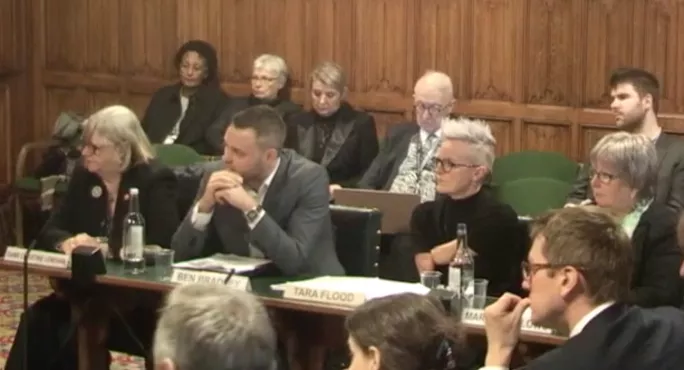- Home
- Five ways to improve ‘dysfunctional’ SEND system
Five ways to improve ‘dysfunctional’ SEND system

The system for pupils with special educational needs and disabilities (SEND) is “dysfunctional”, MPs were told today.
The Commons Education Select Committee heard from several SEND experts that the reforms that replaced statements of special educational need in 2014 had the right intentions, but were not working in practice and had, in some cases, made things worse.
Tara Flood, director of the Alliance for Inclusive Education, said that in the past two or three years, there had been a spike in parents getting in touch, with “the majority at the end of their tether”.
“They come to us and recount the most appalling experiences of struggle, of feeling embattled,” she said.
John Harris, a Guardian journalist who has a son with autism, described the previous regime as “a very dysfunctional system of rationing in which the central criterion was ‘which parents could push the hardest’”.
However, he added: “Irrespective of the good intentions mentioned so far, it seems to me that the new system, particularly because [it was] enacted at a time of austerity, is failing, and one of key ways in which I see it is failing is that same dysfunctional system of gatekeeping.”
The reforms introduced education, health and care plans (EHCPs), and raised the age of those who could be covered by the plans from 19 to 25.
Today, witnesses suggested a number of improvements that they said needed to be made:
1. Provide expert support for schools
Jean Gross, chair of the Bercow: Ten Years On review, pointed out that parents felt they needed to fight for EHCPs because they provided a guarantee of support. But, she argued, a better school system where there was more accountability for SEND provision within schools, and in which a team was available to come into a school and provide expertise in how to support SEND pupils, would reduce the pressure on parents.
2. Insist the tribunal service gives feedback on trends
Christine Lenehan, director of the Council for Disabled Children, said that tribunals should work as a service-improvement tool. She added that tribunals used to produce a yearly digest, which showed what the trends were. For example, it could be shown what percentage of tribunal cases rested on school transport. That type of feedback could then be used by authorities to develop policies.
3. Introduce a national education, health and care plan template
Ms Lenehan recommended a national template for EHCPs. Mr Harris said that with different systems in different local authorities, it was difficult for parents to give or find advice.
4. Introduce SEND training for teachers, not only in initial teacher training, but also during early career development
There have been moves to introduce SEND training into initial teacher training, but Ms Gross pointed out that the time spent in initial teacher training was very short. She added that such training needed to be included in the government’s upcoming plans for teachers’ early career development - training that takes place within the first two or three years of teaching.
5. Give more support to local authorities’ children services and education departments
MPs heard calls for councils to increase capacity and have more members of staff.
Mark Lever, chief executive of the National Autistic Society, said the big challenge was for authorities to get out of a reactive cycle, look at the needs for the next 10 years and develop a strategy for meeting them.
“Local authorities are under so much pressure, they don’t have that time to step back and put that plan together, but that would make a massive difference,” he said.
A Department for Education spokesperson said: “We want to make sure all children with special educational needs get the support they need, whether that is through an Education, Health and Care plan or otherwise. That is why are investing a record £6 billion in the high needs budget this year. We require schools to ensure they have the right support in place, including dedicated SEN co-ordinators in every school.”
.
Register with Tes and you can read two free articles every month plus you'll have access to our range of award-winning newsletters.
Keep reading with our special offer!
You’ve reached your limit of free articles this month.
- Unlimited access to all Tes magazine content
- Save your favourite articles and gift them to your colleagues
- Exclusive subscriber-only stories
- Over 200,000 archived articles
- Unlimited access to all Tes magazine content
- Save your favourite articles and gift them to your colleagues
- Exclusive subscriber-only stories
- Over 200,000 archived articles



